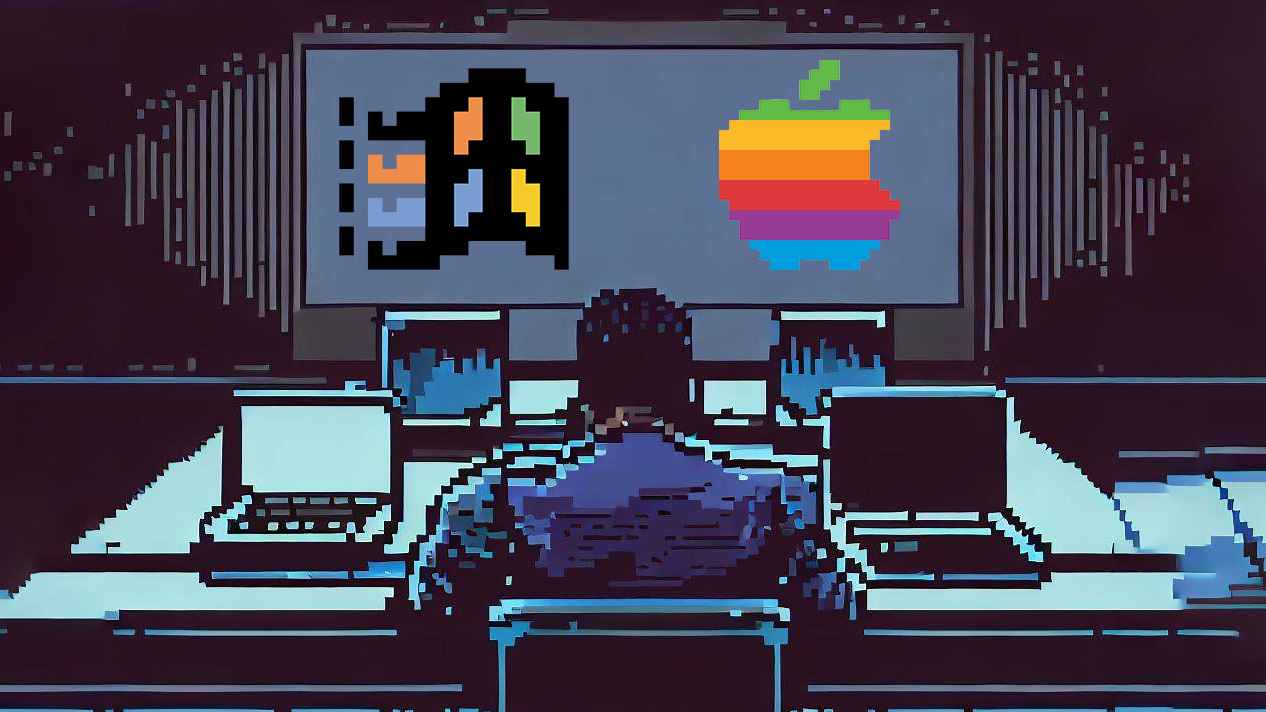It's not just Surface PCs — Apple Mac sales suffer a similar battering as well
The decline of the PC market is real.

What you need to know
- Tech companies are posting their quarterly earnings reports, per regulations for publicly traded companies.
- Microsoft's revenue was up 7% for the quarter, but Apple's was down 3%.
- Both companies suffered a stark decline of around 30% in their PC hardware divisions, painting a bleak picture for the global laptop market.
A short while ago, Microsoft revealed its quarterly financials for Q3 FY23, and they painted a bleak outlook for Windows, Surface, and even Xbox hardware.
While Microsoft was up overall, beating estimates and leading to a rally in its share price, all verticals relating to hardware suffered declines. Windows OEM PC licensing saw a 28% decline, with Xbox hardware down 30%, and Surface PC hardware also down 30%. It's all owing to what Microsoft described as "macroeconomic headwinds," a term we're seeing more and more of lately, and one premium laptop manufacturer Apple also found itself using recently.
Apple also revealed some middling results this quarter, as part of its Q2 reporting to shareholders. While iPhone sales continue to defy the economic slowdown, iPad, wearables, and notably Apple Mac laptops were all down. Macs saw a similar 30% decline year-over-year, which is eerily similar to the results posted by Microsoft over the same quarter. Microsoft's fiscal year runs slightly differently from Apple's, so Microsoft's Q3 is Apple's Q2.
"These results were driven by the challenging macroeconomic environment coupled with a difficult comparison against last year’s launch of the completely reimagined M1 MacBook Pro," Apple said, banging the macroeconomic headwinds drum. Analysts describe how excess inventory accumulated to meet the shift to work-from-home has battered demand, coupled with inflation putting a squeeze on household incomes. As such, people are seeking to retain their existing laptops for longer, rather than splurge on upgrades. The vast majority of people who wanted to upgrade likely did so during the pandemic, and as offices re-open, there's a reduced need to have a high-tech home office.
Windows Central's Take
Apple CEO Tim Cook often speaks of the desire to diversify Apple's revenue streams to reach more enterprise customers, which is something that has kept Microsoft afloat in turbulent consumer-oriented businesses. You could argue that Microsoft is firmly business-first with a side order of consumer offerings, whereas Apple has historically been the opposite. Microsoft has also laid off thousands of employees globally, whereas Apple has largely avoided making such heavy cutbacks.
Microsoft's diversification has been its strength, but the pace of innovation can lead to a sense of inconsistency at best, and layoffs at worst. HoloLens, Surface, and Xbox all saw layoffs this year thus far, as Microsoft scales back after beefing up to meet opportunities that emerged during the pandemic era. Conversely, Apple's CEO Tim Cook recently said that layoffs are not being considered. Despite modest declines in year-over-year revenue, Apple remains monstrously profitable, and all without the kind of mass layoffs seen by Google, Meta, and indeed, Microsoft.
In any case, neither company seems to be immune to waning demand in the laptop market — but the excess inventory seems to have created the ideal conditions to find great deals on the best laptops.
Get the Windows Central Newsletter
All the latest news, reviews, and guides for Windows and Xbox diehards.

Jez Corden is the Executive Editor at Windows Central, focusing primarily on all things Xbox and gaming. Jez is known for breaking exclusive news and analysis as relates to the Microsoft ecosystem while being powered by tea. Follow on Twitter (X) and Threads, and listen to his XB2 Podcast, all about, you guessed it, Xbox!
